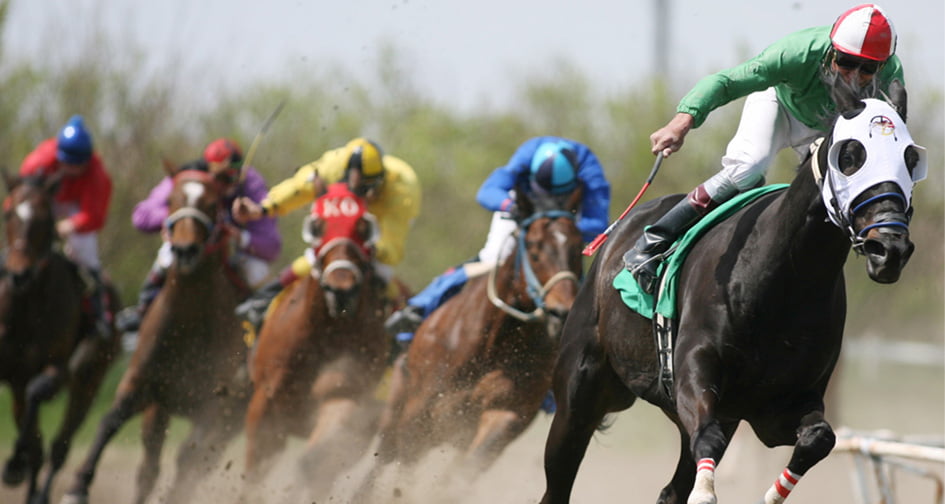The Horse Racing -Horse Betting Connection
The history of betting on horse races race probably goes as far back as the history of horse racing itself. It is a daunting feat to determine precisely when and where equestrian betting started. Why so? Two reasons prevail.

First and foremost, it is unlikely that records of horse betting would exist as the activity wasn’t as significant as it is today. Secondly, if for some odd reason that such records of horse racing wagers existed, it would be hard to decipher them as such due to language barriers. All that is available is relatively recent. However, despite variation in form and type of wager, you can be sure that equestrian betting has been part of human culture from the time horses became domesticated.
Equestrian Betting Traditions in the Orient
The horse has been an integral part of the traditions of the nomadic tribes of present-day northern China. This fact is affirmed by the central role that horse racing plays in the lives of these nomadic herdsmen, even in this very age. Most of the horse racing traditions of these people date back from millennia ago and have passed down from one generation to another as folklore.
These nomads are bonafide descendants of the fierce Mongols, who at one time had an empire that stretched across the entire European continent. The Mongols were among the first peoples to have bred horses with the goals of realizing strength, speed, and stamina. As it is with the present-day nomads, the Mongols placed great social significance on horse racing and the practice of placing wagers on the racing steeds.
As a young Mongol, you would have been trained to ride a horse from your youth, and winning a major horse racing contest would have been a life goal. Why so? Because successful Mongol warlords would give considerable rewards to the winners of the races they sponsored.
Furthermore, winners of these events would not only acquire wealth in gold coins but would also get praise, honor, and recognition from their tribe. The Mongols are indeed one of the earliest examples of equestrian betting that dates back to the 10th century AD. However, equestrian betting and racing traditions go back further than even the Mongols.

Equestrian Racing and Betting among the Greeks and Romans
The Greek civilization emerged around the 8th century BC and was to become the foundation of present-day western culture. Thus all you see and perceive as modern society has Greek culture as its foundation. It should, therefore, be no surprise for you to find that horse racing and betting held a special place in Greek tradition. How so? Primarily through the earliest and most notable contribution of the world, the Olympic Games.
The Greeks highly valued sportsmanship as it had a religious connotation to them. Sports embodied the perfection of the human body and mind; a feat likened to the perfection of the Greek god Zeus. It was thus a religious duty for the independent Greek city-states to hold a common sporting festival in honor of the gods. This festival came to be known as the Olympics and happened every four years.
Young professional sportsmen and women from the different city-states met in the chosen city for the games. Before the start of each event, members of the elite ruling class would place bets in gold and silver coins in favor of the different competitors. However, being primarily a religious event, the equestrian betting involved personal wagers between individuals as opposed to open betting. Horse racing was just one of the many sporting events that were part of the games.
When the Romans conquered the Greeks in the 2nd century BC, the Olympic tradition was adopted by the conquerors. Thereby the Greek traditions of horse racing and betting persisted and thus ultimately found their way to present-day western culture. The Roman helped to spread horse racing and betting to the rest of Europe and the Middle East.
From the Middle East to England then America
The roots of modern horse racing and betting date in America can be traced back to the time of the crusades. After an initial round of hard fighting between English Knights and the Muslim hordes, an uneasy ceasefire came into being. It was during this period of calm that the English knights got introduced to the Middle Eastern tradition of horse racing as a sport where a bet was placed on a horse before the race. The English knights would pit their steeds against those of their Muslim counterparts. In contests involving obedience, speed, and stamina, Arabian and Turkish horses would almost always win.
This outcome was inevitable because, despite their smaller size, Arabian horses exhibited exceptional stamina, were very fast and very obedient to their owners. It is thus no surprise that when it came time to return to England around the 12th century AD, the crusaders brought back Arabian and Turkish horse breeds with them. The descendants of the Arabian racing steeds were brought to the Americas by wealthy British settlers.
Modern Horse Racing and Betting in America
The history of horse racing in America is considerably shorter. This outcome is even though native Indian tribes found on the continent had domesticated the horse for millennia before. Why is it so? Simply because horse racing was not as prominent among the American Indian tribes as it was elsewhere. Furthermore, most of the American Indian tribes were people who had a reserved dislike for monetary motivations of all kinds.
The horse breeds that came to dominate the American horse racing scene are descendants of the Arabian horse breeds brought to the continent in the 1500s. The very first racing track in the Americas was laid out on long Island. It was mainly a private racetrack that was only accessible to a few. Despite there being quite a considerable horse population on the continent, professional horse racing did not exist for some time.
The advent of the civil war meant that horse racing had to take a backseat. Interest in horse racing, as a public spot, did not resume until 1868. It was during this year that the American Stud ledger began. The ledger was to keep track of the lineage of all the racehorses in the country.
Anti-gambling efforts that targeted equestrian betting became a significant obstacle to horse racing in America early on. However, things took a decisive turn in 1925 when legislation was introduced to regulate horse race betting. This law, known as the Pari-Mutuel Act, made it possible to regulate equestrian betting in America. This law has been in place till today and has been amended several times to keep it at par with the evolution of equestrian betting platforms.




